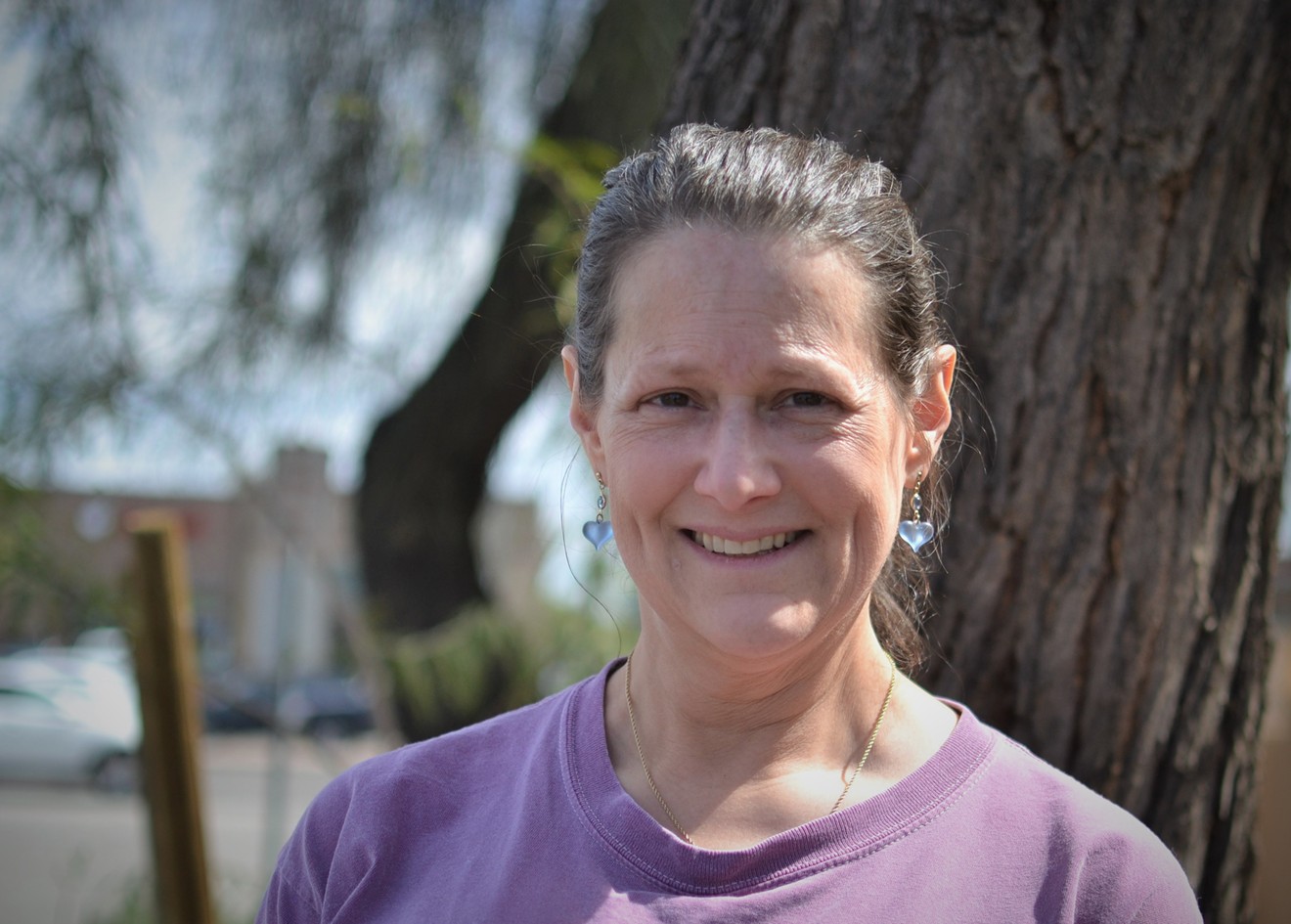She needed time to process, and took a week off work.
Then Purcell returned to her job as a supervisor at a pay station for Phoenix's Water Services Department. She notified her bosses about the cancer, and began politely asking for a transfer to a different pay station, one that was closer to her home and to her oncologist.
Those requests were the first of many that Purcell would eventually make. She had read that cancer is often covered under the Americans with Disabilities Act, and that many workplaces would accommodate shift and location changes for employees with the disease. She hoped that the city of Phoenix would be one of them.
However, over the next two years, the city of Phoenix ignored or rejected Purcell's every plea, records show. Every other avenue she pursued for help — the Equal Opportunity Department, the Attorney General's office — led to a dead end.
Exhausted, Purcell retired in May 2018. She had worked in the department's customer service division for 33 years.
"It just got to a point where I was like, I can't handle fighting the city and fighting cancer at the same time," Purcell said.
Stephanie Bracken, a spokesperson for the City of Phoenix Water Services Department, declined to answer specific questions about Purcell. She cited state and federal laws that bar the city from disclosing medical information, including accommodation requests and the process those requests go through.
Instead, she referred Phoenix New Times to the city's policy on ADA accommodations, which claims that providing "reasonable accommodations to individuals with disabilities" is city policy "unless doing so would create an undue hardship."
Those reasonable accommodations include reassigning an employee to an open position for which they're qualified, or modifying work schedules. Undue hardship, the city says, is "an action requiring significant difficulty or expense" — financial, operational, or "any other factor" — and is determined on a case-by-case basis.
It also states that supervisors, managers, and human resources liaisons and directors have to communicate with each other, and the affected employee, "promptly."
Purcell experienced none of that.
"It made absolutely no sense," Purcell, who is now 53, told New Times one morning in March at a McDonald's on the west side of Phoenix. "I was trying to go through the ranks [with my accommodation request], the way you're supposed to," she explained, as she ran through a timeline of her ordeal, which she'd documented meticulously.
Despite the multiple times she'd been moved from station to station without her input prior to her diagnosis, Purcell found that once she notified the city of her cancer, things were different. She believes that because she had to take time off for surgery, chemotherapy, and radiation treatment, using varying combinations of unpaid time through the Family and Medical Leave Act, plus vacation and comp days, her bosses wanted her out.
"I did take time off," Purcell said. "But there were days I'd come back to work the day after chemo."
We'll 'check into it'
From February until June 2016, a month before her diagnosis, Purcell had been filling in as a Supervisor II — a rung above Supervisor I — at the west side pay station at 67th Avenue and West Thomas Road. Before that, she'd worked at the northwest pay station, another of the three satellite locations that the Water Services Department then operated where customers could pay water bills in person.
That June, Purcell was transferred, without anyone consulting her, to the south central pay station on East Baseline Road. It was far from her home in Goodyear, but she didn't mind the commute, until she got sick. Once she needed to attend regular radiation therapy and other medical appointments at 93rd Avenue and West Thomas Road, the commute to south Phoenix started to feel grueling. The west side pay station, however, was much closer.

The south central pay station, where Purcell was working when she was diagnosed with cancer, was a long commute from her home and her oncologist.
Elizabeth Whitman
Purcell also applied for an open position as Supervisor II at that station — the very position she had temporarily filled until June. When she was invited to interview for the open position, the interview was scheduled for a day Purcell had already requested off because of medical tests.
At the end of August, Holguin denied Purcell's request for a transfer and instead gave her the option of stepping down from her acting supervisory role. She could return to a position with lower pay at the pay station in northwest Phoenix, which was just as far from her oncologist as the south central location.
A few days later, Purcell contacted Debra Payan of the city of Phoenix's human resources department, hoping that HR would advocate for her.
"I am located more than an hour's commute from my home and on the opposite side of the city from my oncologist," she wrote in an email to Payan. "Does the city honor requests to work closer to home since I am now so fatigued and suffer nausea and headaches? I am using more [Family and Medical Leave Act] time for doctor appointments and testing now that I have to drive further."
Payan did not respond. A week later, Purcell wrote again, sounding chipper and friendly in her follow-up. Still no response. More than three weeks after her initial email to HR, Purcell tried again, this time including other HR staff on the email. One of them, Leslie Pehoua, responded, apologized "for the delayed response," and asked to speak by phone.
According to Purcell's notes from the conversation, Pehoua told her that accommodations were handled "at the department level." In follow-up emails, she referred Purcell to two different human resource officers in the Water Services Department.
Giving up
Throughout all this, Purcell asked Holguin to keep her on the list of candidates for the open Supervisor II position at the west side pay station. The position hadn't been filled after the initial round of interviews, due to a lack of candidates, but when the city held the next round of interviews, Purcell wasn't invited.
When Purcell asked why, Holguin told her that she hadn't met the criteria for the job — a position she'd previously been eligible for three times. To Purcell, it made no sense. As she later wrote Holguin and Joyner, "According to your email, I am not eligible to interview for the job I have been doing since February of this year."
After that, Purcell filed a complaint with the city's Equal Opportunity Department, saying she believed Holguin and Joyner were retaliating against her for requesting the location change due to her cancer. She pleaded, "I have worked for the city of Phoenix for over 31 years and have never received a negative performance review."
On October 10, 2016, three months after her diagnosis, Purcell emailed Ed Zuercher, the city manager, her message teeming with frustration. She named nine people, in a smattering of city departments, whom she had asked for help getting an accommodation, and who had done nothing.
"In all this time I have not been given an explanation as to why it would cause the [city of Phoenix] an undue hardship to move me back to the Westside pay station where I was previously located," she wrote Zuercher. "I have also been originally denied an interview for the position that I am currently (filling in for)."
Zuercher responded and said he would ask the director of human resources to "review immediately."
After that, human resources was more responsive to Purcell. But in the end, Brenda Hartle, the acting HR supervisor for the city of Phoenix, told Purcell that she couldn't be moved to the westside pay station.
"The Water Department is regrettably unable to fulfill your accommodation request at this time. The reason for this is that currently there is no vacancies [sic] at the West Pay station you are requesting to move to," Hartle wrote. "I understand that this is a difficult time for you, but I appreciate your willingness to continue our ongoing dialogue concerning this matter."
In mid-October 2016, Purcell gave up. She told Holguin and Joyner that she would take a pay cut and go to the northwest pay station, where she had worked for about a year starting in 2015.
Even though it was just as far from her oncologist as the South Central pay station was, it was a smaller, quieter pay station than the one at south central, and Purcell knew the employees there well.
"It was less stressful," Purcell said. The employees "went out of their way to help" her, she added."I did take time off," Purcell said. "But there were days I'd come back to work the day after chemo."
tweet this
But transferring and taking a pay cut didn't end Purcell's troubles.
In December 2016, when she used a combination of comp days, sick time, and vacation to take off six weeks for surgery, her paycheck came up short. The following February, Purcell requested a temporary shift change due to a stint of radiation therapy. She was denied, even though, as she told a superior, another supervisor had been granted a shift change so she could attend classes.
Finally, in February 2017, Purcell opened up a complaint with the Civil Rights Division of the Arizona Attorney General's office, which offered to mediate. But nothing came of it, she said, and when she called the attorney general's office to follow up, they said they had lost her file and were going to close the case.
In response to a public records request for Purcell's complaint, the Attorney General's office said it could not release any records related to investigations, citing confidentiality.
Medical costs
When she was first diagnosed, Purcell had wanted to continue working for the city as long as possible, in part because her health insurance costs were far lower as an employee than as a retiree. While she worked for the city, she paid monthly premiums of about $350 for herself and her husband.
"I would not have left that early," Purcell said, had she not been so worn down by the city's treatment of her. Now, the couple pays $1,000 per month in premiums, and while Purcell's co-pays remain low, they will increase — Purcell's not sure by how much — when her health insurance plan changes in six months, or 18 months after Purcell's retirement.
But in August, Purcell found out that the cancer had spread to her lungs, and that it is terminal. She is taking a new drug that is supposed to stop the cancer from progressing for another 10 months. The drug has left Purcell nauseous and exhausted, but she remains hopeful that soon, her body will adjust.












